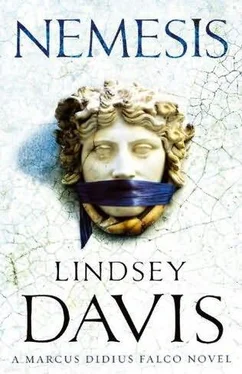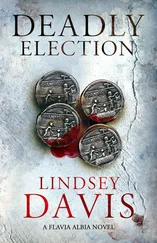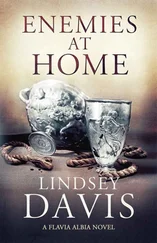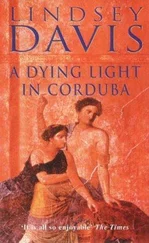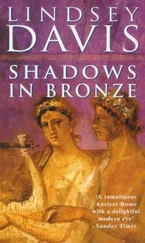He bounced out not long afterwards, pretending nothing had happened. Perhaps embarrassment clouded his judgement from that point.
I was holding a packet of honeycakes, which I had decided would be reassuring. I announced that Nobilis had escaped capture in Latium (this was why I had asked Silvius to delay his report). According to me, Nobilis had trekked back to Rome, where he was spotted by the bright-eyed vigiles. Petronius Longus knew where he was and was guarding the location; since it was the spy's case, I had come to fetch him. 'He's hiding up. The place looks grim, but Petronius and I are with you. There's no time to wait for back-up; he has a hundred escape routes available.'
Anacrites did ask, 'How do I know you're not lying, Falco?'
'You don't,' I replied curtly – - that old double bluff, which never fails if your opponent is conceited. Taking it upon himself to believe me was a daring executive decision.
He agreed to come. He had no bodyguards with him at the baths, so it was him and me. I said Petro had told us to hurry, because he was alone on guard. So we walked rapidly through Rome, just a short distance. As we strode side by side, with Anacrites trying to forget his privates were painful (but walking with great difficulty, I was glad to see), I let myself make comparisons.
Although my own family were a ramshackle feckless bunch, to Anacrites the Didii must be a thousand times better and happier than his: warm, vibrant, cheerful and, under their craziness, caring about one another. I was starting to see why Helena had always thought Anacrites yearned to be me – yearned for it, yet felt so jealous he wanted to destroy what I had.
This was crucial to understanding him: the contrast between my Aventine family and his swamp-dwelling relations. His set had ended up alienated and dire, all petty criminals, some venal. Mine might look hopeless and annoying but they mostly had good hearts. Clearly it was due to Ma. Her life was a struggle but she always took a determined interest in her offspring; too much, we thought, though it produced results. Anacrites, spawned in trouble and ripped from his roots, ended up amoral and friendless. I had been given tenacious ethics and could relate to most people. He might easily have gone the way of his murdering brothers – perhaps had done. I never could. One of us was unavoidably a villain, the other perhaps a hero.
A tangle of streets close to the Forum was the place Petronius and I had chosen. It was ripe to be redeveloped by some free-spending emperor. Perhaps by the time we were very old men it would be.
We met Petronius Longus at the end of a narrow alley called Nap Lane. He was carrying equipment, well wrapped up. It struck me that this alley was an urban version of that ravine near Antium. Previously known to both of us, it was a bare wagon's width across; a laden cart could lose its cargo, bashing against the walls. Steep, boarded-up facades of abandoned buildings rose either side. They made the street, which was clogged with dried mud and littered with fly-tipped debris, almost too dark to see down. Absentee entrepreneurs owned or rented decayed warehouses here, either left empty or half filled with stolen goods. Shady runaways sometimes sheltered in these cordoned-off, rotting premises; most were too scared and preferred to starve and be mugged in the shade of bridges where someone might at least find their corpses.
Everywhere was quiet. It was dinnertime in Rome. This was a fine day in early September, between the Calends and the Nones, still in the school holidays; not a festival; before the Roman Games; not a black day in the calendar. Absolutely nothing noteworthy about the day at all, in fact.
Nobody saw three men hold a short discussion, after which they all walked into the dingy alley. They were comfortably built and capable, so they all went with confidence. A few moments later, there were sounds of a short scuffle, expertly managed. It was followed by dull metallic noises, as if someone had pulled up and dropped a large manhole cover. The Great Sewer, the Cloaca Maxima, ran beneath the rutted roadway, taking sewage and storm water to the River Tiber.
Not long afterwards, two people strolled out again from that alley. Emerging into the late evening light, they walked unhurriedly, comfortable in an easy friendship. They looked like two men casually eating pastries and perhaps talking about the races. Two men who were preparing to leave the streets after the day's business and who were setting off home to their families.
